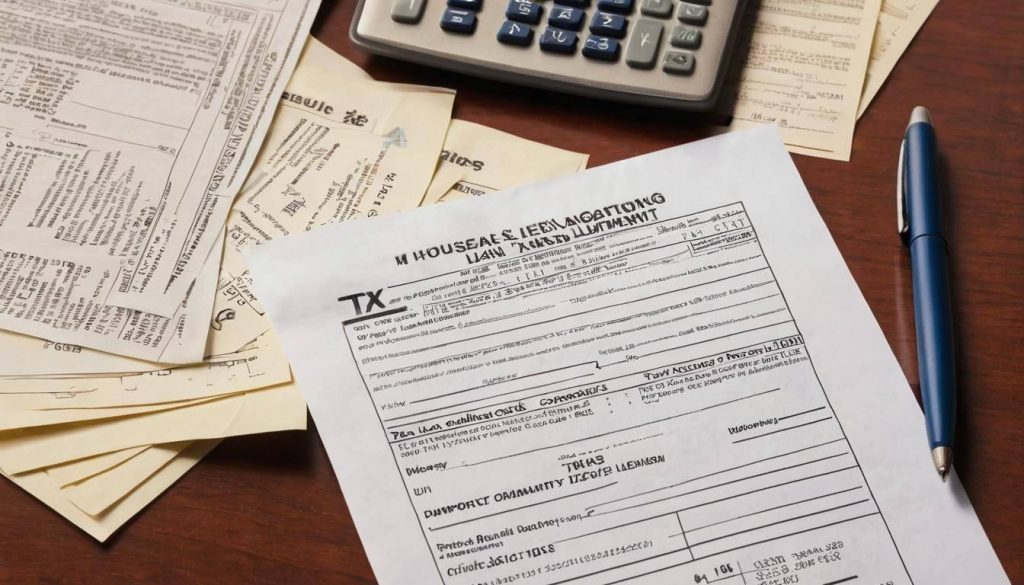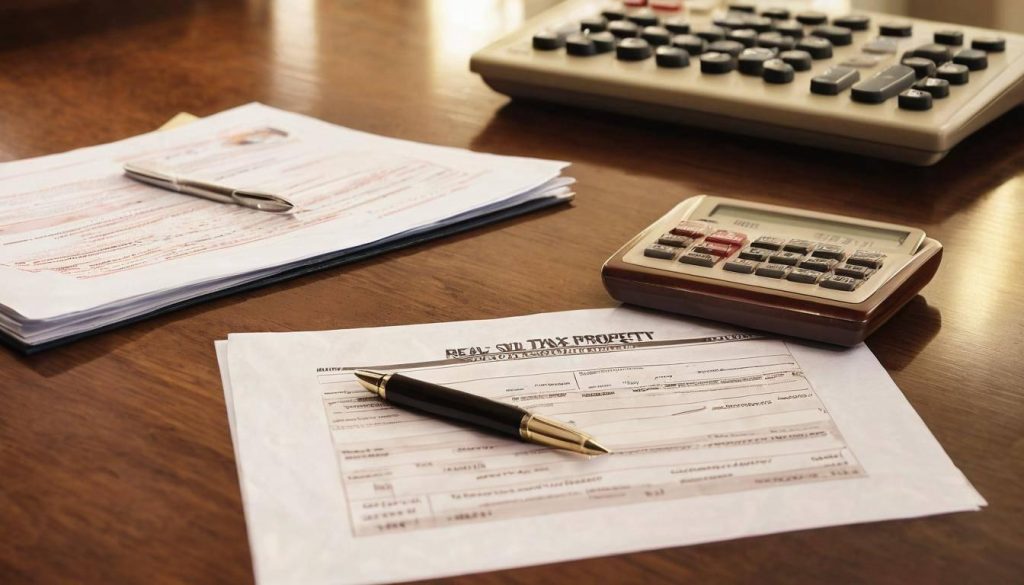Selling a house is already a complicated process, but when you add tax liens to the mix, it can feel like an insurmountable obstacle. Imagine finally preparing your home for sale, only to discover that unpaid taxes are blocking your path forward. You’re not alone; as of 2023, nearly $15 billion in property tax liens were recorded across the United States, affecting thousands of homeowners just like you.
Faced with this challenge, it’s crucial to understand exactly how these liens work and how they can be resolved. Drawing on expert advice and real stories from those who have successfully navigated similar situations, we’ve crafted this comprehensive guide tailored to your needs. By breaking down each step—from addressing the lien directly to making your property more appealing to buyers—we aim to equip you with all the tools necessary for a successful sale despite existing tax burdens. With that in mind, let’s explore what tax liens mean for your property and how best to tackle them head-on.
Yes, you can sell a house with tax liens, but the process may be more complicated than selling a lien-free property. Buyers will be cautious of any existing liens, so it’s important to disclose this information and work with a real estate professional or an attorney to navigate the sale while addressing the liens satisfactorily.

Understanding Tax Liens
Tax liens arise when homeowners fail to pay their property taxes, leading local governments to impose a legal claim on the property as a means of securing the owed amount. This action serves as a financial safeguard for municipalities, ensuring they can recover revenue necessary for essential services such as schools, public safety, and infrastructure maintenance. Essentially, once a tax lien is placed on your home, it indicates that the government views your property as collateral for unpaid taxes.
It’s crucial to grasp how these liens function since they directly impact your ability to sell your home. If you’re considering selling, any existing tax liens must be resolved before the transaction can close. The lien creates an encumbrance on the title, which means potential buyers will be wary of taking on a property with unresolved debts. Most buyers will conduct thorough due diligence, often discovering any outstanding liens during the title search process.
As of 2023, nearly $15 billion in property tax liens were filed in the United States, highlighting just how widespread this issue is and further emphasizing why it’s essential to address any tax obligations promptly.
Each year that a tax lien remains unpaid, additional fees and interest can accumulate, further complicating your financial responsibilities and making it tougher to retain ownership. Moreover, failing to settle a tax lien might escalate the problem into a tax foreclosure lawsuit, where the government could potentially take possession of your home altogether.
Being proactive about understanding and addressing tax liens is not merely a financial obligation but also a strategic move toward safeguarding your ability to sell effectively. By ensuring all dues are settled ahead of time, you save yourself from delays and potential legal complications down the road.
If you find yourself in this predicament, seeking assistance from financial professionals or real estate experts can be beneficial. They can guide you through options like negotiating payment plans or exploring other solutions. Taking action on tax liens protects your financial standing and bolsters your chances of achieving a smooth sale when you decide it’s time to list your property.
Next, we’ll explore the necessary steps to prepare your home for listing while factoring in any hurdles created by outstanding liens.
Preparing Your Property for Sale
The journey to selling your house, particularly with a tax lien hanging over it, starts with making sure your home effectively puts its best foot forward. It’s essential to not only make your home visually appealing but also address any underlying issues that could deter potential buyers. Tapping into a good first impression can translate into quicker sales and potentially better offers.
Steps to Prepare
- Declutter and Clean: Think of this as giving your home a fresh start. Begin by clearing out personal items, excess furniture, and knickknacks that may overwhelm potential buyers during showings. Not only does decluttering provide a clean slate, but it also allows buyers to envision their own belongings in the space. Furthermore, ensure every corner shines by performing a thorough cleaning—this includes windows, floors, and even hidden areas like behind appliances or under furniture.
- Repairs and Maintenance: Addressing minor repairs can yield significant rewards. Take time to fix leaky faucets and squeaky doors or replace broken tiles. These small acts demonstrate to buyers that you’ve cared for your home and are serious about the sale. Don’t forget about the aesthetic aspect; a fresh coat of paint can breathe new life into rooms, drawing attention away from any exterior concerns related to the tax lien.
- Professional Appraisal: Understanding the value of your home is key, especially under the strain of a tax lien. A professional appraisal will give you insight not only into your home’s market value but also into how much equity you have after accounting for the lien. Having this knowledge empowers you to negotiate effectively and set a competitive price for potential buyers.
With these preparations completed, you’ll be well-positioned not just to attract buyers but also to handle any negotiations regarding the lingering tax lien on your property.
Clearing or Negotiating the Lien

Tackling a tax lien can seem overwhelming, yet it holds great importance in facilitating a smooth home-selling process. Understanding your options for negotiation can make all the difference in successfully clearing or negotiating the lien.
Options for Resolution
One of the easiest paths forward is setting up payment plans. When you contact your local taxing authority, inquire about their policies regarding installment agreements. Many municipalities recognize the financial strain that unexpected tax bills can impose and offer payment plan options that allow you to clear the lien gradually. This method not only alleviates immediate financial pressure but also demonstrates to potential buyers your commitment to resolving outstanding debts.
If the original amount due feels daunting, consider settlement negotiation. Engaging in a conversation with the tax authority may yield favorable terms. By presenting your case and demonstrating good faith efforts, like timely payments on other obligations, you may negotiate a reduced amount owed. Persistence often pays off. For instance, I recall a client associated with the Holly Nance Group who managed to lower their outstanding lien by 30% through persistent negotiations. This reduction significantly impacted their overall financial standing when selling.
Transferring the lien may also be a viable choice. This option involves working with a buyer who can assume responsibility for the debt, effectively incorporating it within their purchasing agreement. While this may require transparency during price discussions and deeper negotiations with prospective buyers, it can provide relief by alleviating your direct responsibility toward the lien while still facilitating a sale.
Equipped with these strategies, you’ll be ready to address any liens on your property with confidence, paving the way for smoother transactions ahead as you consider engaging potential buyers.
Attracting Potential Buyers
Selling a house with a tax lien can feel daunting, but by implementing strategic marketing efforts, you can connect with buyers interested in your property. The first step is to ensure your listing is visible on popular online real estate platforms such as Zillow and Realtor.com. These platforms have extensive reach and can help expose your property to a larger audience. However, it’s crucial that you disclose the existence of the lien upfront; transparency is key when dealing with any real estate transaction, particularly one with complexities like liens.
As you craft your listing, take time to underscore the property’s strengths. Rather than allowing potential buyers to become fixated on the lien’s negative aspects, highlight features such as a prime location, updated kitchen or bathroom, or an expansive backyard.
For instance, if your home is near well-rated schools or popular amenities, make sure these details stand out. Additionally, if the roof was recently replaced or energy-efficient windows were installed, tout these improvements—buyers appreciate turn-key opportunities.
Research supports this strategy; in fact, according to a 2022 Zillow survey, homes listed with full disclosure about their liens remain highly marketable. Properties marketed strategically can still sell for anywhere between 10% to 15% below standard market value—certainly more promising compared to undervalued listings without transparency. This data demonstrates that informed buyers often recognize potential in properties despite tax barriers when they perceive overall value.
Once you’ve developed an attractive and honest listing, you’re ready to consult legal experts who can help navigate any buyer concerns regarding liens and guide you through the selling process effectively. Understanding the various legal nuances involved will prepare you not only for the transaction but also for any implications associated with the lien itself.
Legal Responsibilities in Lien Situations
When you’re facing tax liens, understanding your legal responsibilities is paramount. Ensuring all legal aspects are covered not only protects you but also builds trust with potential buyers. The first step is to consult with legal experts who can guide you through the intricate landscape of tax-related issues. They will help you comprehend how tax liens affect your property sale, ensuring that no crucial detail slips through the cracks.
Legal Steps
Hiring a real estate attorney who specializes in tax liens is vital. These experts know the ins and outs of local regulations and can provide tailored advice based on your specific situation. During this process, transparent communication regarding the liens attached to your property is essential. This involves disclosing all lien information in writing to potential buyers before finalizing any agreements. Such transparency fosters credibility and shields you against claims of misrepresentation down the line.
Keep in mind that failing to properly disclose lien information could lead to complications, such as future litigation or the buyer backing out of the sale at the last minute when they uncover hidden issues.
You might wonder about costs: engaging a legal professional typically incurs fees that can add approximately 1-2% to the total transaction cost. While this may seem like an unnecessary expense, consider it a critical investment in peace of mind and future protection against potential legal drama.
With a clear understanding of your legal obligations and having enlisted expert help, you’re now prepared to move ahead smoothly in the selling process. This careful preparation ensures a seamless transition for everyone involved in the property sale.
Completing the Transaction

The closing process on a house encumbered by a tax lien follows established procedures, albeit with some critical additional steps to ensure all obligations are met without complications.
First and foremost, clearing all financial obligations is essential. The proceeds from the sale should adequately cover the repayment of the lien. This prevents any last-minute surprises at closing and ensures that the sale proceeds smoothly.
Next, you need to work closely with the title company throughout this process. This collaboration is vital as they will play a significant role in managing the lien’s resolution, ensuring that everything is completed correctly before the title can be transferred to the new owner.
You’ll want to provide them with any necessary documentation related to the lien and its payment arrangement. Effective communication here minimizes complications that could arise later on.
As you approach the final stages of your sale, it’s critical to conduct a final walkthrough of the property. This walkthrough serves multiple purposes: it allows both you and the buyer to verify that the property is in agreed-upon condition before completion and gives you one last chance to address any concerns the buyer may have.
Once the conditions are confirmed satisfactory, you will proceed to sign all closing documents.
Many buyers, particularly in tricky situations like this, require additional assurances. You can build their confidence by maintaining transparency throughout the entire process.
Ensuring that each legal step is carefully followed not only protects your interests but also safeguards theirs.
With these tips in mind, you’ll navigate through this complex journey toward finalizing the sale with greater ease and confidence, setting the stage for what comes next in your selling experience.
Ensuring a Successful Sale
A successful sale transcends the act of closing; it is about cultivating satisfaction and peace of mind for everyone involved. To achieve this, several key steps come into play, embodying both diligence and attention to detail.
One of the first actions after closing is ensuring that all liens on the property are marked as paid in public records. This isn’t merely a bureaucratic formality — it’s essential to affirm the legitimacy of your title and protect the new owners from any future liabilities stemming from outdated claims.
Following the recording of lien releases, maintaining open lines of communication is vital.
- Follow-Up: Engage with your buyer to confirm that their experience has met their expectations. This includes checking if they have received all necessary documentation and whether they feel confident in their new property.
- Documentation: Keep copies of all relevant paperwork associated with the sale, including records of any liens released and communication with the buyer. This can offer vital protection against potential disputes later on.
- Feedback and Review: Don’t shy away from asking for feedback from your buyers. It’s an opportunity to gather insights for future endeavors and provides closure for both parties regarding the transaction process.
Harnessing the expertise of professionals, such as those at Holly Nance Group, can significantly ease these responsibilities. Engaging experienced real estate specialists ensures a smooth transaction process. They can navigate complexities related to tax liens, simplifying your journey toward a stress-free sale.
Ultimately, safeguarding your interests while nurturing a positive relationship with your buyer sets the stage for future opportunities in real estate dealings.
In conclusion, taking proactive steps not only streamlines your sale but also enhances your overall experience. For personalized assistance in navigating complex real estate issues, reach out to us at Holly Nance Group or call (609) 473-3370 today!
How do tax liens affect the value of my home when I put it on the market?
Tax liens can significantly affect the value of your home when putting it on the market, as they represent a claim against your property for unpaid taxes. Potential buyers may be deterred by the prospect of having to deal with these liens, and properties with existing tax liens often sell for 10% to 25% less than similar homes without such encumbrances. Moreover, lenders may be hesitant to finance a home with tax liabilities, further reducing your pool of interested buyers and pushing down the sale price.
Will tax liens automatically transfer to the new owner after the sale?
Yes, tax liens typically transfer to the new owner after the sale of a property. This means that if a home has an outstanding tax lien at the time of sale, the new owner becomes responsible for settling that lien. According to the National Tax Lien Association, about 5% of properties sold in some regions may come with existing tax liabilities, underscoring the importance of thorough due diligence before purchasing real estate.
What steps should I take to resolve tax liens before selling my house?
To resolve tax liens before selling your house, first, obtain a copy of your property tax statement to understand your outstanding balance. Next, contact your local tax authority to discuss payment options or settlement agreements; paying off the lien is often the most straightforward solution. You may also want to seek help from a tax professional for negotiating with authorities, as studies show that properties with unpaid tax liens can decrease in value by as much as 20-30%. Finally, ensure all documentation regarding the lien resolution is obtained and kept for potential buyers during the sale process.
What options do I have if I cannot pay off my tax lien before selling?
If you cannot pay off your tax lien before selling your house, you can consider options such as negotiating a payment plan with the taxing authority, assuming the buyer is willing to take on the lien, or seeking a settlement for less than what you owe. Some homeowners explore refinancing their existing mortgage to cover the lien. According to the IRS, nearly 15% of households face tax liens, highlighting that many find themselves in similar situations, but proactive communication with tax authorities can lead to workable solutions without jeopardizing your sale.
Can I sell my house as-is if there are existing tax liens?
Yes, you can sell your house as-is even if there are existing tax liens; however, the liens will typically need to be paid off before or at the closing of the sale, as they remain attached to the property. Notably, about 14% of homeowners in the U.S. face tax liens at some point, which can significantly affect the sale process and negotiations with potential buyers. To attract buyers, it’s beneficial to disclose the liens upfront and consider lowering the asking price to account for the buyer’s potential costs associated with resolving these liens.
